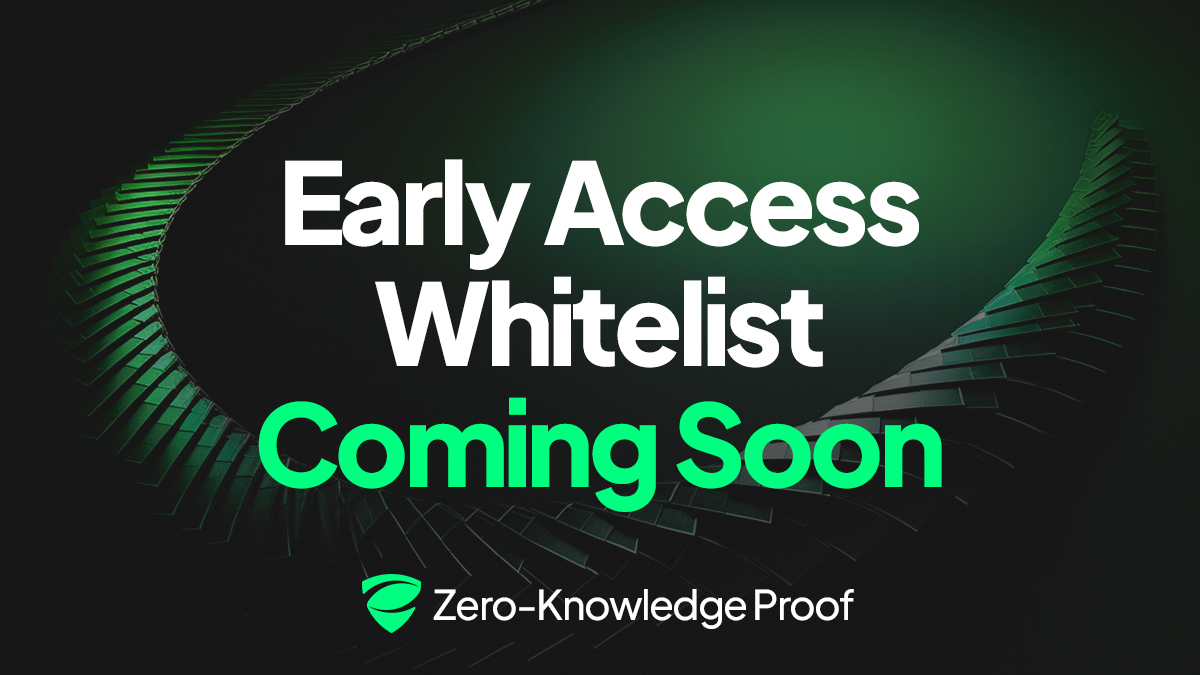DeFi started with transparency, but its next evolution is about privacy and control. The open ledgers that once defined progress now expose users to risks, front-running, traceable wallets, and exploitable governance votes. Zero Knowledge Proof (ZKP) changes that. It’s building a Layer-1 where privacy isn’t an optional add-on but the foundation itself.
Through shielded smart contracts and a DAO treasury designed for fairness, Zero Knowledge Proof is building the kind of DeFi system the rest of the market will copy in a year’s time. The whitelist will open soon, giving early participants a chance to be part of the network before confidential finance becomes the norm.
Shielded Smart Contracts, The Private Core of DeFi
Traditional DeFi contracts make every transaction public, from loan sizes to governance votes. Zero Knowledge Proof (ZKP) fixes that through shielded smart contracts, which let transactions stay verifiable without revealing the sender, receiver, or amount. These contracts protect data through zk-verification, mathematical proofs that confirm validity without exposure.
Key benefits include:
- Confidential DeFi: Users can lend, borrow, or swap without their balances or strategies becoming visible.
- Business-grade privacy: Institutional users can deploy dApps without leaking transaction patterns.
- Composability retained: Despite privacy, contracts still interact fluidly within the ecosystem.
Developers using Solidity can port code directly. No additional learning curve. This makes Zero Knowledge Proof (ZKP) both private and practical. Shielded execution isn’t a theoretical layer, it’s baked into the base architecture. That’s why ZKP is being seen as the blueprint for the next phase of decentralized applications.
The DAO Treasury, Transparent Rules, Private Votes
If privacy is ZKP’s heartbeat, governance is its backbone. The DAO treasury under Zero Knowledge Proof (ZKP) brings together transparent accounting and shielded decision-making. Funds flow visibly through audited contracts, yet individual votes remain private. This keeps decision-making free from influence, coercion, or social signaling.
Core features include:
- Quadratic voting: Weight based on participation quality, not just token count.
- Shielded ballots: Voter identities and choices are concealed while results remain verifiable.
- Decentralized treasury control: Allocations, grants, and upgrades are all governed on-chain.
This balance of transparency and secrecy ensures governance can’t be manipulated through whale pressure or external monitoring. It’s a self-regulating system that treats privacy as a governance right. Zero Knowledge Proof (ZKP) thus doesn’t just protect wallets, it protects democracy inside DeFi.
Building Confidential DeFi at Scale
A privacy system is only as good as its scalability. Zero Knowledge Proof (ZKP) employs parallel proof generation and modular execution to ensure shielded transactions don’t bottleneck performance. While traditional blockchains slow down when privacy layers are added, ZKP was engineered from the start to handle thousands of zk-verifications per second.
Why it matters for developers and users:
- Speed: zk-proofs are computed and verified in parallel.
- Cost: Transactions remain low-fee even under high volume.
- Accessibility: Developers retain EVM compatibility, integrating existing tools and frameworks.
DeFi protocols built on Zero Knowledge Proof (ZKP) can scale confidentially. Imagine a DEX with hidden order books or a lending market where balances aren’t publicly viewable. This isn’t a side-chain, it’s a privacy-first mainnet. And with the whitelist set to open soon, early contributors can secure access before confidential DeFi becomes industry default.
The Rare Entry Before Privacy Becomes Standard
Every crypto cycle has a turning point. The shift from transparent DeFi to privacy-native DeFi is the next one. Zero Knowledge Proof (ZKP) represents a chance to enter before that change becomes irreversible. Its dual pillars, shielded smart contracts and DAO governance, place it ahead of other networks that still treat privacy as an afterthought.
Here’s what sets it apart:
- Native privacy: Integrated from the base layer, not retrofitted.
- Governance integrity: Confidential voting tied to real-time treasury transparency.
- Long-term scalability: Modular structure ensures upgradability without forks.
The whitelist will open soon, marking a one-time entry window before this model becomes the standard DeFi blueprint. Once major projects migrate toward similar architectures, Zero Knowledge Proof (ZKP) will already have the infrastructure, the tools, and the community governance to lead the new phase of decentralized finance.
Why the Future of DeFi Is Zero Knowledge Proof (ZKP)?
What makes Zero Knowledge Proof (ZKP) special isn’t just its technology, it’s the timing. Privacy in DeFi is no longer a niche; it’s the missing safeguard. Shielded smart contracts restore confidentiality. The DAO treasury ensures fairness. Together they create a structure where transparency and secrecy finally coexist.
DeFi’s next chapter will be written on networks that respect both autonomy and anonymity. Zero Knowledge Proof (ZKP) stands right at that threshold, offering one of the last chances to be early before privacy becomes a given. The whitelist will open soon, and when it does, it won’t just mark another presale, it will mark the start of what DeFi will look like tomorrow.
Find Out More about Zero Knowledge Proof:
Website: https://zkp.com/
Disclaimer: This media platform provides the content of this article on an "as-is" basis, without any warranties or representations of any kind, express or implied. We assume no responsibility for any inaccuracies, errors, or omissions. We do not assume any responsibility or liability for the accuracy, content, images, videos, licenses, completeness, legality, or reliability of the information presented herein. Any concerns, complaints, or copyright issues related to this article should be directed to the content provider mentioned above.






